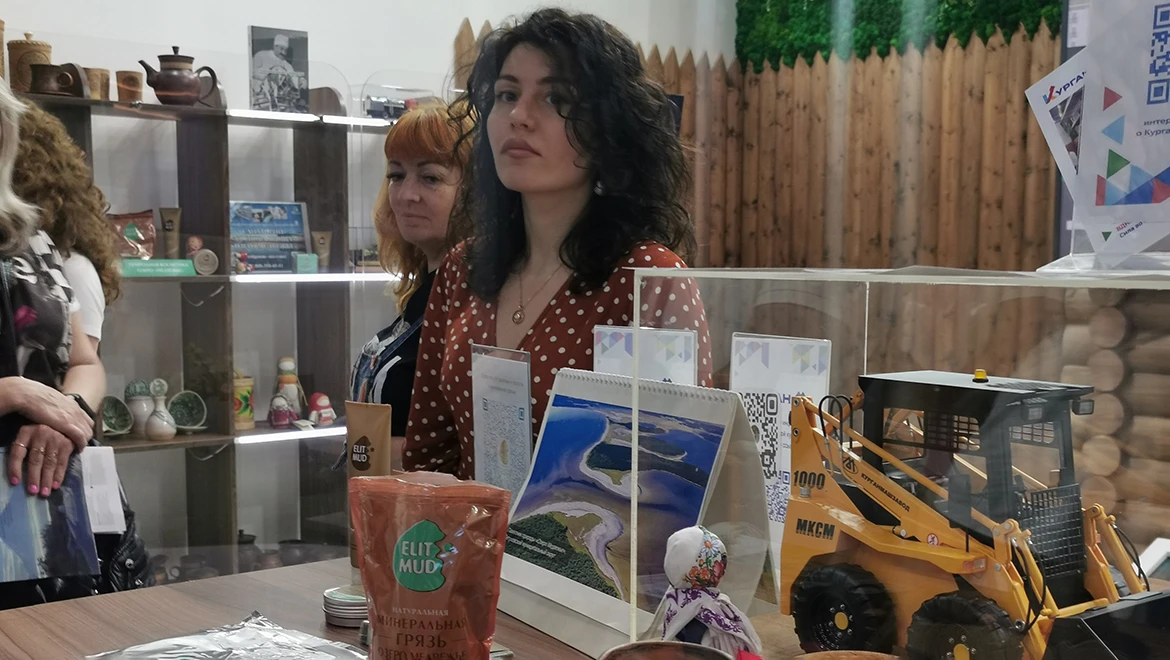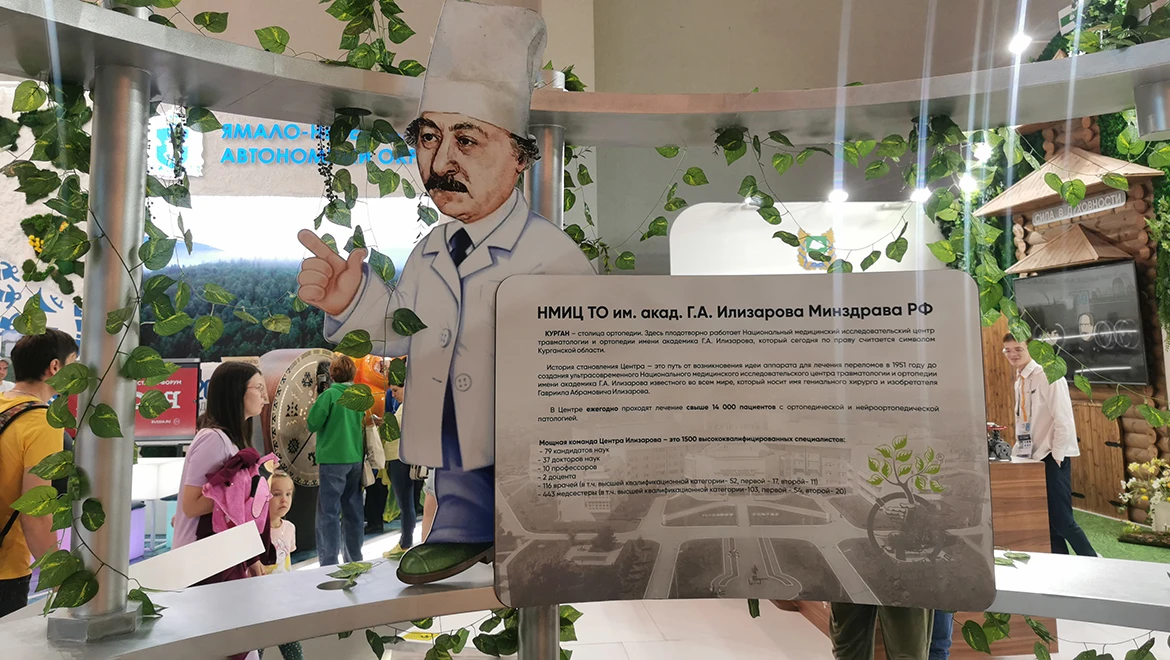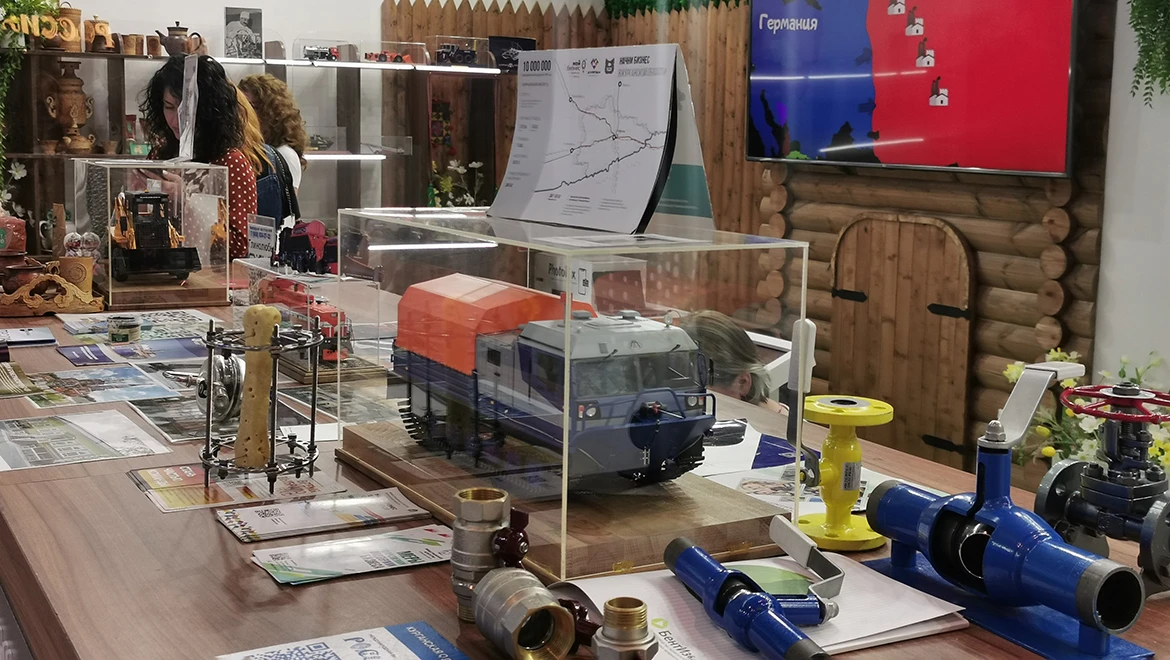Orthopedic capital and gateway to Siberia: what makes the Kurgan region so interesting
At the RUSSIA EXPO, visitors can discover each region of our vast country and learn many new things. For example, many may not realize that Kurgan is known as the domestic capital of orthopedics, and the region is also famous for its therapeutic muds and salty lakes.
The Kurgan region stand is the only place where guests can smear themselves with mud. This is because the region's mud baths are renowned nationwide for their miraculous effects. Visitors can verify this at the Exposition, so many boldly apply mud to their hands or even their faces. If it doesn't heal, at least it makes for a fun photo opportunity.
Additionally, the Exposition showcases the work of the renowned Soviet orthopedic surgeon, inventor and doctor of medical sciences, Gavriil Ilizarov. His inventions and treatment methods have rehabilitated numerous patients worldwide, saving thousands of lives after complex fractures. Thanks to his work in the 1970s, Kurgan today is recognized as the capital of orthopedics. The local medical center annually treats 14,000 people with orthopedic and neuroorthopedic pathologies.
People travel to the Kurgan region not only for treatment but also for splendid recreation. The region is known for its salty lakes and ancient burial mounds, with over a thousand cultural and historical sites listed as part of Russia's heritage. Moreover, the federal highway "Baikal" and the Trans-Siberian Railway pass through here, earning Kurgan the title of Siberia's gateway. Visitors can engage in hiking, cycling, driving and even horseback riding tourism, while in winter, they can enjoy snowmobiling and skiing.
Kurgan is the oldest city in Trans-Urals, situated on the banks of the Tobol River. Here, one can stroll across the largest square in the Urals, admire the unique Alexander Nevsky Cathedral — a remarkable architectural monument, enjoy the beautiful embankment of the Tobol River and immerse oneself in history at the historical complex "Tsarevo Gorodishche".






